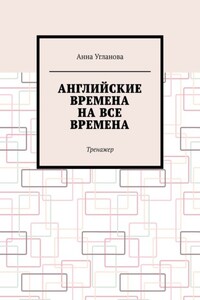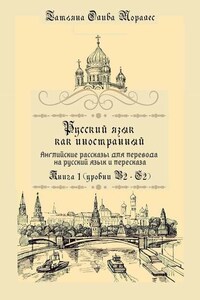Look and compare
Моя сестра вяжет КАЖДЫЙ ДЕНЬ.
My sister knits EVERY DAY.
СЕЙЧАС 6 часов вечера. Она вяжет (СЕЙЧАС).
NOW it is 6 p.m. She is knitting (NOW).
Она вяжет свитер УЖЕ 3 ДНЯ (СО ВТОРНИКА).
She has been knitting the sweater FOR 3 DAYS
(SINCE TUESDAY).
1. Match 1—3 to a-c and complete the sentences.
1. He does his homework
2. He is doing his homework
3. He has been doing his homework
a. for two hours.
b. every day.
c. now.
__________________________________________________________________
__________________________________________________________________
__________________________________________________________________
__________________________________________________________________
__________________________________________________________________
__________________________________________________________________
I work every day.
Present Simple (Настоящее простое) употребляется для ПОВСЕДНЕВНЫХ, РУТИННЫХ, ПОВТОРЯЮЩИХСЯ действий, для обозначения простых фактов и общих истин:
I have a shower every morning. Каждое утро я принимаю душ.
Water boils at 100° C. Вода закипает при 100° C.
Present Simple по форме совпадает с инфинитивом1 глагола (без частицы to) во всех лицах, кроме 3-го лица единственного числа, принимающего окончание -s (-es).
do not = don’t
does not = doesn’t
ПРАВОПИСАНИЕ окончания -s/-es у глаголов в 3 л. ед. ч.:
К большинству инфинитивов прибавляется окончание -s:
I speak – he speaks
You eat – she eats
Если инфинитив оканчивается на шипящие и свистящие звуки -sh, -ch, -tch, -x, -ss, -zz, а также -o, то мы добавляем окончание -es:
We watch – he watches
They miss – she misses
I go – he goes
We do – she does
Если инфинитив оканчивается на -y, а перед -y согласная, то -y меняется на -i + -es:
I hurry – he hurries
You study – she studies
НО! Если перед -y гласная, то добавляем просто -s:
We pay – he pays
They enjoy – she enjoys
2. Write the third singular forms of the following verbs.
I play – he ___________________
I go – he ___________________
I fly – he ___________________
I spend – he ___________________
I ask – he ___________________
I wash – he ___________________
I pass – he ___________________
I carry – he ______________________
I try – he ______________________
I study – he ______________________
I take – he ______________________
I catch – he ______________________
I do – he ______________________
I teach – he ______________________
FREQUENCY ADVERBS (Наречия частотности)
Present Simple часто употребляется с наречиями, выражающими частотность: alwaysвсегда, oftenчасто, seldomредко, sometimesиногда, neverникогда, usuallyобычно и т. д.
Они ставятся перед глаголом, НО! после глагола to be:
I usually get up at 7 o’clock but I’m never late.
3. Rewrite the sentences as in the example:
I get up at 7 a.m. (always)
I always get up at 7 a.m.
1. We go to the theatre. (often)
____________________________________________________________________
2. They quarrel. (never)
____________________________________________________________________
3. He is afraid of darkness. (sometimes)
____________________________________________________________________
4. I come home very late. (usually)
____________________________________________________________________
4. Write as in the example.
I like ice cream.
Do you like ice cream?
I don’t like ice cream.
1. They live in New York.
____________________________________________________________________
____________________________________________________________________
2. You speak Russian.
____________________________________________________________________
____________________________________________________________________
3. We sleep at night.
____________________________________________________________________
____________________________________________________________________
4. He knows French very well.
____________________________________________________________________
____________________________________________________________________
5. She leaves work at 6 p.m.
____________________________________________________________________
____________________________________________________________________
5. Write the correct forms of the verbs using Present Simple.
1. The postman (to bring) ________________ us the newspapers in the morning.
2. I (to hear) ____________ you well. Don’t speak so loudly.
3. I (not to understand) ____________________ this sentence.








